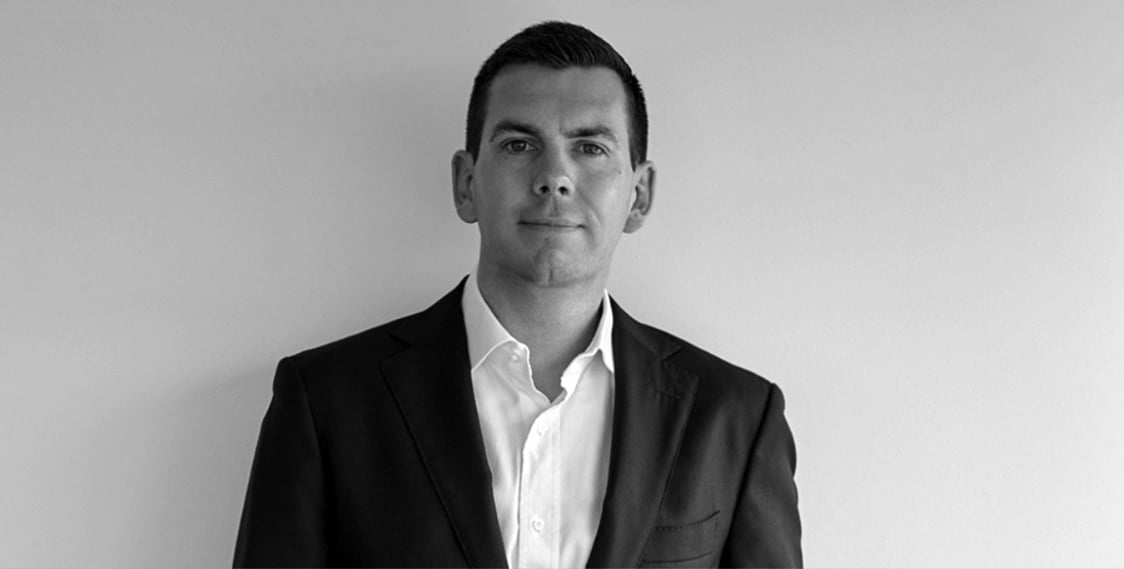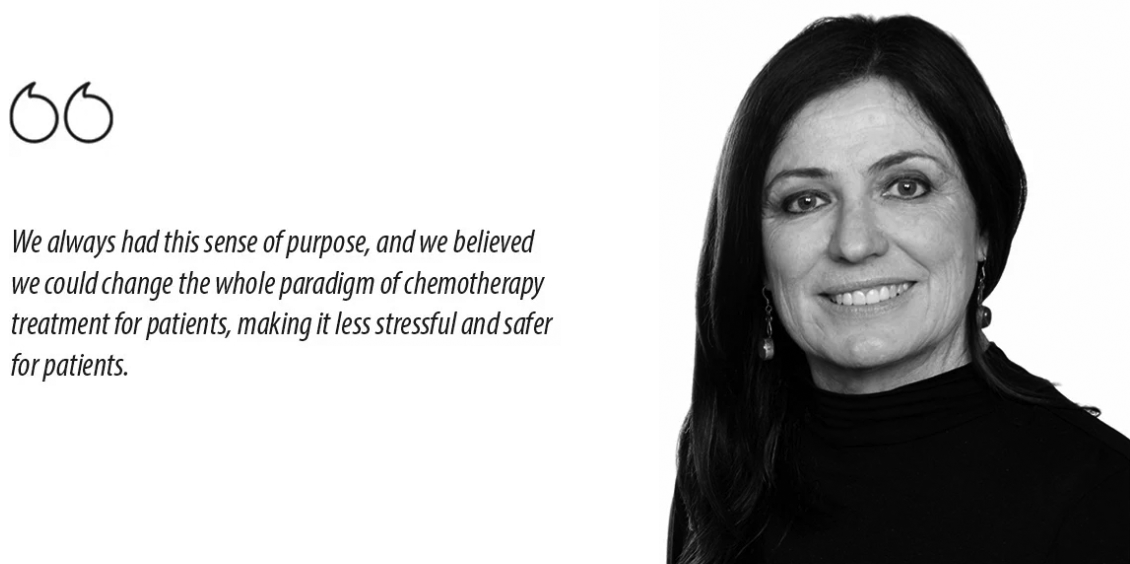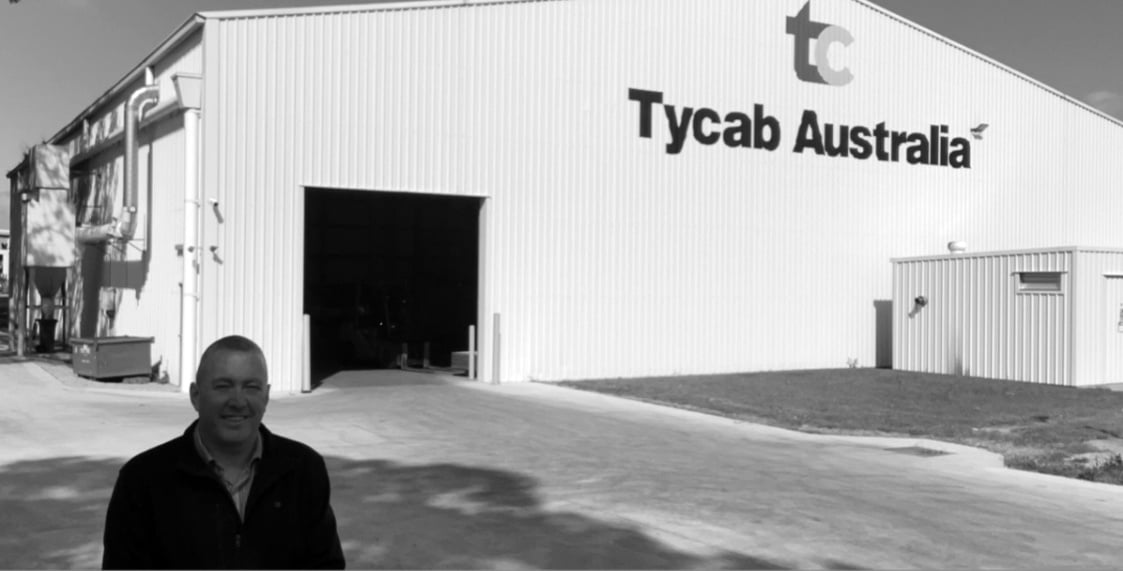4 min read
Creating Beauty from Inception to Shelf
At first glance, Michael Tattersall’s (Syndicate 41) background story would not naturally lend itself to that of a highly successful Managing...

Vincent O'Neill, CEO of Stanford Brown, a Financial Advice business in North Sydney, grew up in Northern Ireland and completed his undergraduate studies in Commerce and Law at University College Dublin. While working in Dublin, he met his now wife Chantelle an Australian. Vincent moved to Australia with her in 2005. While he intended to stay only a year or two, Vincent remained and married Chantelle in late 2007.
During his first few years in Australia, anticipating he would eventually return to Dublin, Vincent applied for contract roles. He worked with some big names like Virgin Mobile and Westpac. In 2007 he wanted to move into the financial advice world, believing it was a good combination of economics and relationship skills. It took Vincent six months to obtain an entry-level role in the industry because, in Ireland, he had managed large teams, so they were cautious of placing him in an entry-level position, fearing he would get bored or move on. After being declined by some of the larger corporates in the industry, he was offered a job in client services at Stanford Brown. A fateful appointment for both parties.
"We were a much smaller business back then, approximately a third of the size we are today, but the company was very ambitious in their growth aspirations. I found good alignment in their culture and objectives with my own principals and ambitions. I stayed in that role for just over two years as I obtained my formal qualifications to become a Financial Adviser. I continued in an advisory position for six years, before being promoted to head up our Private Wealth division, which today makes up approximately 80% of our business. After six years in that role, I became CEO at 40".
Vincent describes his industry as having a significant impact on people's lives.
"We've unfortunately seen some historic examples in our industry where poor advice can have a meaningfully negative outcome. Counter to that, when done well, financial advice can make a significant difference to the quality of someone's life, from planning for the future in terms of downside protection, insurance, to estate planning and intergenerational wealth. Particularly avoiding the pitfalls that can happen around significant life transitions. We are passionate about working with clients not just through the good times but also working with them through the tough times. We love the trust in the relationships and seeing the outcomes from our advice".
Stanford Brown is relatively unique in their industry. The company is owned by ten individuals who work in the business and have grown it to over fifty staff with almost two billion in assets under management. It is rare for a company to be built to that scale while remaining independently owned without institutional control and continuing to operate with full flexibility.
When asked about some of the significant challenges in the finance sector over the last five years, Vincent reflects on the issue with the Royal Commission, describing that it was a way to cleanse the system; however, it has also meant that the industry has halved.
"The biggest challenge we now face is how we continue to deal with that regulatory backdrop and still work efficiently within the system. If you're a business like ours, the challenge is also to grow organically and attract and retain the best talent in that environment. We understand that hiring staff today is more challenging than ten years ago, but we have a strong internal program. I am an example of someone who started in an entry-level position and worked my way up through the organisation, and half of our partner group have done the same thing if not more than half. We have built a lot of experience in knowing the profile of employees who work best at Stanford Brown, both in terms of hiring and elevating staff.
We take a holistic approach by looking at their skillset and drive, intelligence, and communication skills. When someone has the right personality fit, even if they do not necessarily have the experience, we will certainly take a chance and train them. Just like Stanford Brown did for me.
Last year Stanford Brown placed first in the WRK+, Best Places to Work for companies under 100 people in Australia. Interestingly a fellow Syndicate 77 member ESV Accounting also placed in the Top 10.
In recent years, they also received the award for Best Self-Licensed Financial Advice Firm in Australia at the IFA awards.
Vincent shares his philosophy about success and how he believes in three key factors.
"Firstly, you need to get the right people in the right roles, meaning roles suited to their skillset - making sure you're not trying to fit square pegs in round holes. Secondly you need to give them the tools to succeed, be it technology, people support or broader infrastructure. And thirdly empower them to get on with it. If you have the right people in the right roles, let them create great work. We have a corporate structure at Stanford Brown where we empower and trust that our staff will fulfil their role".
When asked about being a member of The CEO Institute, Vincent shares that one of the things he enjoys is the networks and the opportunity to meet many different business owners, CEOs and senior executives. "You meet many impressive people from various backgrounds and skill sets that bring different qualities to the table.
Secondly, as a business owner, I love hearing stories about how other people's businesses are being run, the challenges they face from people to suppliers, to customers, and everything in between. It’s fascinating to brainstorm around the table about a potential solution to a problem that they are working on that they often cannot discuss with anyone in their business, they do not want to burden their family with their stress, therefore the syndicate meeting is a safe place to soundboard things. It's often helping someone self-discover the solution. There are no silver bullets.
It's a place of trust and respect, and it helps me to be in that environment and get some great outcomes. Also, I have found that time away from the business is a wonderful way to reflect and recharge".
The CEO Institute, established over 25 years ago, helps business leaders like you connect with your peers to share skills, insight, and experience. The CEO Institute's leadership programs are available globally. Click here to read more member success stories.

4 min read
At first glance, Michael Tattersall’s (Syndicate 41) background story would not naturally lend itself to that of a highly successful Managing...

5 min read
Lorna Cook, Syndicate 82, is the Co-Founder and Co-Director of Chemo@home. Lorna started this niche health company with her...

4 min read
In the non-traditional sense, Craig Moulin (Syndicate 1) had a typical first decade in his career. Starting as a storeman and then forklift...